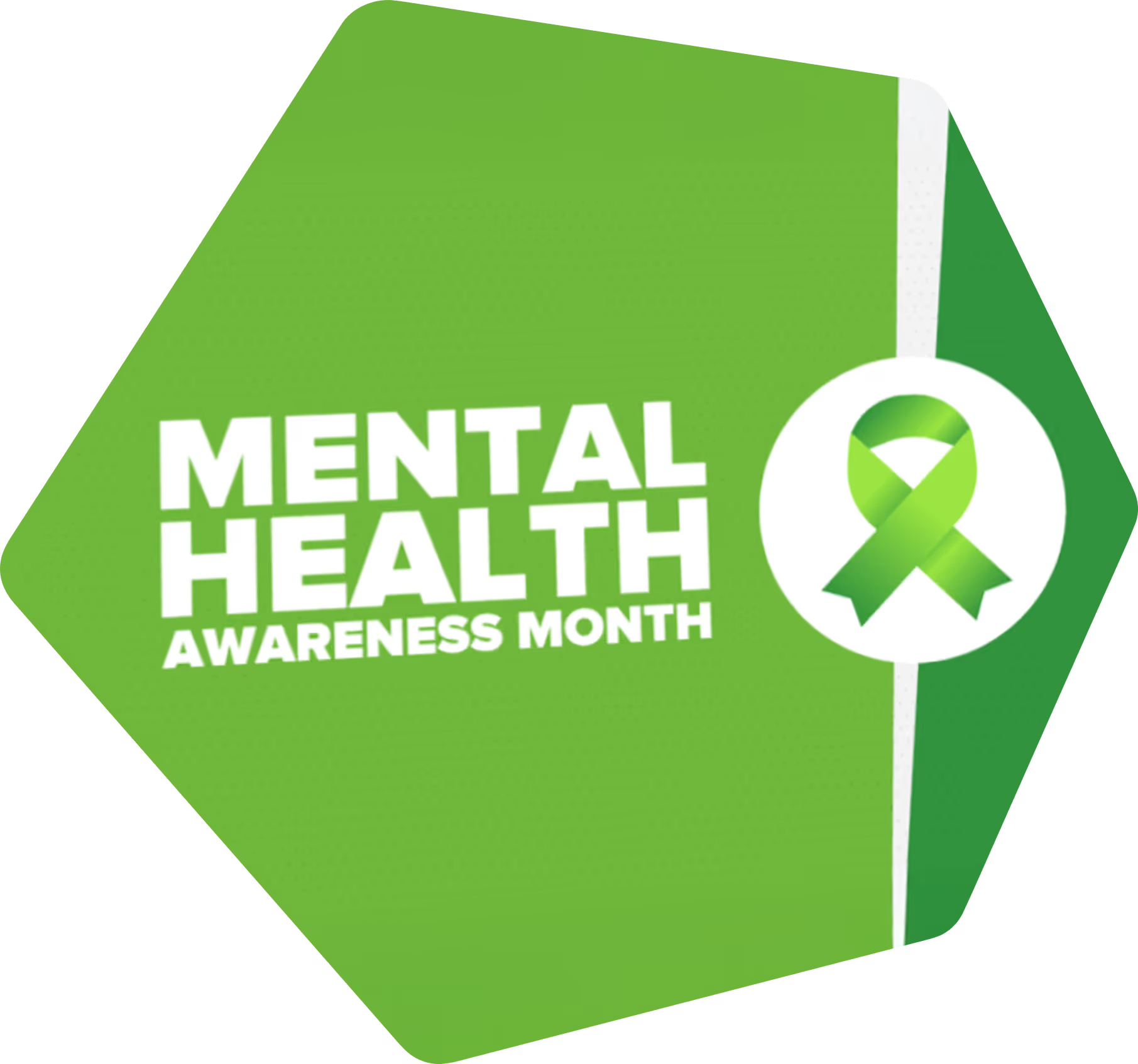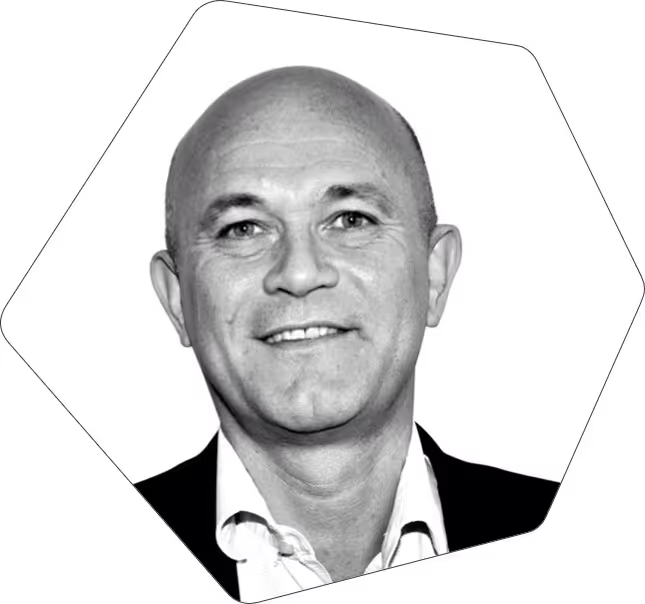
Mental Health at Work

.png)
.png)
.png)
.png)

.png)


Why is mental health and well-being important to you as a leader?
Our colleagues are our most valuable asset. I’ve seen the impact that burnout and stress can have on even the strongest teams. Teams thrive when they feel supported—not just as professionals, but as people. You can’t expect great performance from people who are running on empty tanks, and if people aren’t doing well personally, it shows up everywhere. At Vitesse, we’re building a culture that reflects that belief—because the companies that prioritize well-being are the ones that perform and grow sustainably. This initiative is just one example of how we’re taking a more thoughtful, long-term approach to supporting our people and strengthening the business.
How do you personally manage your mental well-being during periods of significant change or uncertainty?
Over the years, managing businesses and teams has taught me how to navigate change and uncertainty with the right mindset. Change is inevitable; it occurs both at work and in our personal lives. I embrace change as a constant and rely on my strong faith and routines that help me stay grounded like time with family and exercise. I’ve learned that managing uncertainty starts with taking care of yourself, so you can show up strong for others—even when things feel chaotic.
What strategies have helped you stay resilient while leading others through change?
Effective communication, transparency, and clarity on objectives and timing are crucial. You cannot overcommunicate. I strongly believe in treating colleagues as adults who deserve to know what is happening, why it is happening, and the path forward.
What message would you share with employees who may be struggling silently?
Don't face challenges alone; it's crucial to discuss your concerns. Another valuable lesson I've learned is that everyone has faced struggles at some point in their lives. It’s easy to feel like you’re the only one going through something, but you’re not. The sooner you reach out, the sooner things can start getting better. Talk to someone. It’s not a weakness—it’s part of being human. Help is available, so please take advantage of it.
What’s one small thing you do regularly that helps boost your mood or mindset?
Every morning is a gift, and when you wake up, you have the power to decide what kind of day you'll have - reactive or intentional. One thing that always resonates with me is the saying: life is 10% what happens to you and 90% how you respond.

Why is mental health and well-being important to you as a leader?
Mental health is important for everyone, not just those in leadership roles. But for managers, poor mental well-being can have wider consequences. If you're not feeling mentally well, it affects not only your own performance, but also your ability to lead effectively. Managers face added pressure to keep their teams running smoothly. If you're struggling due to personal issues or problems within your team — that stress can quickly lead to a negative cycle. You may not perform at your best, which can impact your team's morale and performance as well.Working with someone who’s not doing well mentally can be difficult for others too. Communication and behaviour may suffer, and the atmosphere becomes tense. No one enjoys being in that situation — and you certainly wouldn’t want it for yourself or others. Ultimately, poor mental well-being doesn’t feel good. You’re not happy, your energy is low, and even simple tasks feel overwhelming. That's why looking after your mental health is so important. When you take care of yourself, you function better, and your team and work environment benefit too.
How do you personally manage your mental well-being during periods of significant change or uncertainty?
What works well for me is setting aside time each week for self-reflection. During calmer periods, this process is lighter, but in times of major change or uncertainty, I make it more intentional and in-depth. I use this time to evaluate a few key areas and act if needed:
- Risk – While this might sound abstract, I make it very concrete by looking at things like financial security, my health, and my behaviour. Are there any red flags? If so, I address them.
- Autonomy – I check in with myself: Am I still in control of my decisions? Am I living in a way that aligns with my own values, or am I being swept along by external pressures?
- Growth – I reflect on whether I’m still learning and developing. That could mean new experiences like travel or events, building skills, or expanding my knowledge.
- Harmony – This might sound a bit vague, but it's central to how I feel. I ask myself whether I’m in harmony with myself, with others, with society, and with the natural world around me.
By regularly checking in on these areas, I stay grounded, make better decisions, and maintain a sense of balance — even in uncertain times.
What strategies have helped you stay resilient while leading others through change?
For me, resilience starts with understanding. I want to first get a clear picture of what changes are coming and why they’re necessary, it becomes much easier to lead others through it. When I’m aligned with the purpose, it takes less emotional energy to stay committed — and that clarity helps reduce resistance from the team as well. People can sense when a leader is confident and authentic, and that makes a big difference during times of transition.
What message would you share with employees who may be struggling silently?
Don’t stay silent — take that first step and reach out. Often, those around you don’t realise you’re struggling, but they can help or offer support once they know. You don’t have to face things alone. Also, try to see change as an opportunity for growth. It can be uncomfortable at first, but stepping out of your comfort zone often leads to progress — both personally and professionally.
What's one small thing you do regularly that helps boost your mood or mindset?
For me, being physically active is a powerful way to clear my mind. It’s not always easy to get started — especially after a long, tiring day — but I always feel so much better afterwards.Personally, I love being out in nature. I go hiking, I do trail riding on horseback through the woods, and I enjoy taking on obstacle courses with my horse. Sometimes I go alone, sometimes with others — either way, it helps me reset and recharge, both mentally and physically.

Why is mental health and well-being important to you as a leader?
I guess it's the old adage, you can't pour from an empty cup. I take my responsibility as a people leader very seriously and also understand that a mentally healthy team is more resilient and productive, so everybody wins when we are all mentally healthy.
How do you personally manage your mental well-being during periods of significant change or uncertainty?
I'm very fortunate to have a supportive partner and friends that I can talk to. I find that talking to people that are not emotionally involved in the situation is helpful, so having people outside of work and outside of my family that I trust is really important.
What strategies have helped you stay resilient while leading others through change?
It depends on the situation, it's much easier when I am fully onboard with the change that is being implemented, or I can genuinely see the benefits to the business. In this case, I can comfortably engage with the team or the individuals affected. Where I am not onboard, have little control or the change also has a large impact on me, this is a lot tougher. My initial reaction is normally to talk to someone that I trust, rant a bit, swear a lot, and maybe have a good cry. Once I've got this out of my system, I am more able work with my team to understand their concerns and frustrations and guide them through the change.
What message would you share with employees who may be struggling silently?
Find someone that you trust unrelated to the issue or the change and share your thoughts, fears and concerns with them. I promise they will not think any less of you. If you don't have anyone that fits the bill then try Oliva* or speak to your manager. There are so many people that care about you and your well being.
* Oliva is a platform for therapy and professional coaching, available to Vitesse employees as part of the company's benefits package.
What's one small thing you do regularly that helps boost your mood or mindset?
When I'm feeling overwhelmed (which is fairly regularly!) I get outside and walk, preferably somewhere pretty with my dog.

Why is mental health and well-being important to you as a leader?
On a human level, I simply want to be surrounded by a creative, vibrant and engaged team. But from a leadership perspective, it’s more fundamental than that. Having a lack of mental well-being, would be like trying to win a race in a car with a flat tire – you can try, but it's not going to be pretty. Plus, who wants to work in a place where everyone’s stressed? Not me! At Vitesse, we are committed to building an environment where high-standards and ambitious challenges are met with an equally strong foundation of support, allowing everyone to thrive, not just survive.
How do you personally manage your mental well-being during periods of significant change or uncertainty?
My brain can often feel like it's juggling flaming chainsaws, and I know I'm not alone in that. It's a natural part of being in a dynamic, high-growth business. To manage this, I use a simple but powerful technique to cut through the noise. I pause and ask myself two grounding questions: 'Why is this a priority now?' and 'What is the specific, desired outcome?' Answering these forces me to create mental space. It helps me distinguish between what feels urgent and what is truly important. This clarity is a huge source of confidence. From there, I can break the work down into smaller, manageable steps. For me, making tangible progress—no matter how small—is one of the best antidotes to feeling overwhelmed. It creates a positive feedback loop where progress fuels motivation and well-being.
What strategies have helped you stay resilient while leading others through change?
My most critical role during change is to provide clarity and purpose. My main tool for this is storytelling, which I use in two ways: one for the team, and one for myself. For the team, a compelling narrative answers the 'why' behind the change. It frames the journey, introduces the challenges we expect (the conflict), and paints a clear picture of the resolution we're striving for. This shared story helps turn uncertainty into a collective mission. For myself, building this narrative is a strategic exercise. It forces me to think through the plot, anticipate obstacles, and define success. This process makes me more prepared, committed, and adaptable when the unexpected happens. Finally, experience has taught me the importance of patience. Understanding that meaningful change takes time is a form of resilience in itself. It allows for course-correction and prevents the leadership team from burning out while pursuing the goal.
What message would you share with employees who may be struggling silently?
My primary message is this: You are not alone, and reaching out is a sign of immense strength. We all have an internal narrative, but it shouldn't be the only voice you listen to. We are not meant to navigate challenges in isolation. Building a personal 'support network'—whether it's for advice, coaching, or just a listening ear—is one of the healthiest things you can do. It can feel like 'toughing it out' is the strong thing to do, but true courage lies in vulnerability and asking for help. Vitesse has resources to help, and you can even ping me if you want. No judgment, just support. Us old-guys like giving advice :)
What's one small thing you do regularly that helps boost your mood or mindset?
My not-so-secret weapon is Sherlock, my fox-red Labrador. He is great at listening. It forces a complete context switch and reminds me that there is a big world beyond our small work challenges. Honestly, a few minutes AFK, in the sunlight/rain and throwing his ball around. It’s like a mini brain reboot. And it reminds me there's a world beyond the screen. .



